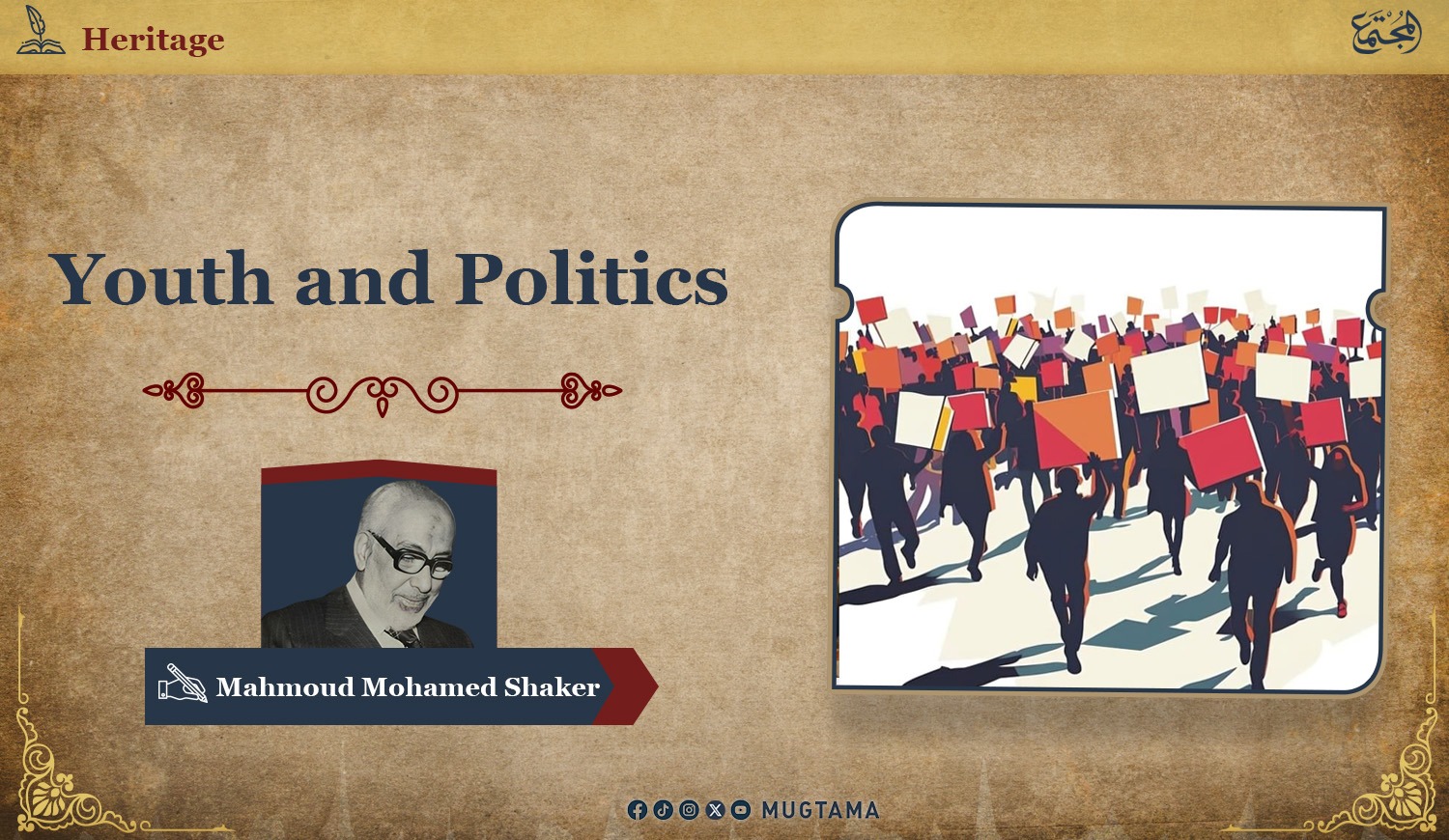Youth and Politics

On Thursday (January 4, 1940), Baha Ad-Din
Barakat Pasha delivered a lecture of great significance, in which he examined
the meaning of politics and the right of youth to contribute to its principles
and branches. He defended the freedom of young people to be concerned with
public affairs, which at times are connected with steering the course of
governance in the country. This, according to him, is the definition of
politics. By this, the partisan disputes that the political arena had
witnessed—marked by antagonism, hostility, mockery, and assaults on individual
and collective freedom—are excluded.
Right to Participate
If this kind of distortion is excluded from
the meaning of politics, reason itself dictates that every person has the right
to participate in the opinions of opinion-holders. Indeed, the innate sense of
freedom obliges him to contribute his views and to sacrifice for the sake of
the national principle upon which the state cannot stand except through its
embodiment in the actions of individuals and groups. The lecturer debated with
a group of professors, but in their discussion they were still influenced by the
“old Egyptian” meaning of politics, neglecting the purpose of the lecture:
distinguishing between what politics had been and what it ought to be, and how
youth should participate in it through opinion and action.
Politics Beyond Abstraction
Politics—as `Azzam Bey put it in his
stance—cannot be a mere abstract philosophical inquiry, for believing in a
doctrine necessarily entails sacrificing to defend it. If politics is a
national endeavor aimed at the public interest and the glory of the homeland,
then it is something worthy of every sacrifice. But if politics degenerates
into the meaning we have seen in partisan strife for the spoils of power, then
it is something not worth even the slightest sacrifice.
We believe that the free human being
recognizes no meaning in that old question: Should youth engage in politics or
should they not? It is a question stamped with the marks of humiliation and
servitude! Everyone in Egypt, and in other lands as well—whether young or old,
rich or poor—owes a debt to the soil that nourishes him, sustains him, shelters
him, strengthens him, and preserves his progeny generation after generation.
The discharge of this debt is only through work in preserving and protecting
it, and defending it with arms, knowledge, labor, thought, and life itself.
Whoever fails in this betrays the trust of this debt and forfeits his honor.
Inevitability of Political Engagement
And how could a young person, or a student,
abstain from engaging in politics? Should he refrain from reading newspapers
and books lest he encounter political thought, distinguish right from wrong,
work to expose errors, and support truth in continuing? Or should he read the
news of nations and events, but when he comes upon his own country, fold the
page and seek forgiveness? Or should he read and read, only to be like a
storage chest, into which is thrown whatever is thrown, simply to be guarded
and preserved from the thefts of thought that his own mind unleashes in its
wake? Or should he read and reflect, but confine his opinions within the walls
of his skull until neglect wipes them away? Thus, the soul weakens, rusts, and
decays, for faith and action are its polish and its shine, keeping it ever
radiant.
Youth: The Backbone of the Nation
Youth—inevitably—are
preoccupied with thinking about politics, and with championing the causes of
truth in it, just as they are engaged in science, literature, and art. But the
whole problem lies in the unraveling of the moral strength that must undergird
science, literature, art, politics—indeed, every endeavor. Moral training comes
first, and then, cast youth wherever you will: they are the backbone of the
people, the defenders of the homeland, and the bearers of the future.
-------------------------------------------------------------
Source: Jumhurat Maqalat
Mahmoud Shakir
Read Also:
-
Zohran
Mamdani: A Rising Muslim Political Voice in America











